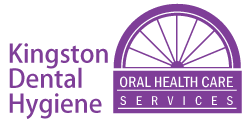Your Mouth tells your Health’s Story
Recent studies indicate that as many as four out of five people suffer from some form of gum disease. Many have only an early form such as gingivitis, which is a relatively mild infection of the gums. However, almost 50% show a form of periodontitis, which can attack the bone that forms the foundation of your teeth. This form of gum disease is responsible for 60% of adult tooth loss.
Gum disease is linked with a number of life threatening illnesses that include stroke, heart attack, ulcers, diabetes, respiratory disease, low birth weight and adverse pregnancy outcomes as well as Alzheimer’s disease.
If there is harmful bacteria in the gums and teeth, there is a possibility that it can be transmitted through the blood stream and affect one or many areas of your body. The bacteria can attach to fatty plaques in the coronary arteries that can contribute to clot formation. Inflammation caused by periodontal (gum) disease increases plaque build up which contributes to the swelling of the same arteries. Gum disease is a serious risk factor for heart disease and stroke. People with Rheumatoid Arthritis are at increased risk of jaw-joint problems, losing teeth, and have a higher incidence of gum disease. It’s a silent killer not just to the teeth. Warning signs such as spontaneous bleeding, tender gums, loose teeth, spaces between your teeth becoming wider and persistent bad breath usually don’t occur until a tooth is about to be lost. At Kingston Dental Hygiene, with a non-invasive procedure, the plaque below the gum line is identified by viewing it under a microscope. A specific home care program is then recommended depending on the client’s needs.
Clients with a compromised health and immune system are placed at an increased risk for not only systemic infections but also oral infections. Medications of all type can have adverse reactions in the mouth. Immunosuppressive agents as well as those medications commonly prescribe to prevent the incidence of stroke or to treat arthritis, high blood pressure, etc. can cause swollen gums, poor healing, excessive bleeding, dry mouth, mouth ulcers, just to name a few.
Careful consideration must be made when choosing those products to maintain a healthy oral ecology. Many products readily available may actually contribute to the reactions previously mentioned, instead of healing and reducing the harmful micro organisms invading the gum tissue and teeth. Avoid those toothpastes and mouthwashes with synthetics and chemicals which can cause the oral tissues to slough and bleed as well as xerostomia (dry mouth). Choose those products with natural antibacterial ingredients and healing herbs.
